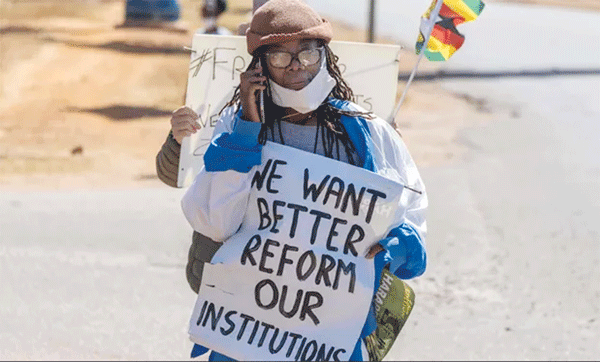
NERVOUS Conditions is a novel about yearning and wanting, about black girls — in this case Zimbabwean girls — desiring better for themselves and their loved ones.
I wrote it as a fugitive. A fugitive from my first memories and of what my life had become.
Early memories were of a foster home in Dover, then of returning to a Rhodesia that had just removed itself from the British empire.
After school I returned to England to study for a BSc in medicine at the University of Cambridge.
The idea was to proceed to a teaching hospital after I graduated, such as the hospital at the mission in the Eastern Highlands of Zimbabwe where I would spend several years of my childhood.
But the nationalist liberation struggle escalated while I was at college, and in the summer of 1979 a peace treaty resulted in a road map to independence.
I was in London, where I’d spent all my summers since arriving in England, during the peace talks.
The bleakness of the Zimbabwean students’ lives, their self-medication with various drugs and episodes of mental collapse related to reliving a war from which they’d fled indicated to me how the mind needed as much treatment as the body.
- Chamisa under fire over US$120K donation
- Mavhunga puts DeMbare into Chibuku quarterfinals
- Pension funds bet on Cabora Bassa oilfields
- Councils defy govt fire tender directive
Keep Reading
Returning to Cambridge under strain, I decided there was no point in enduring the pressure of finding cheap digs I could afford for the holidays, of being the only black girl in my college, reading for a degree I was no longer interested in.
Nor was anyone aware of, or interested in, the historical upheaval that had ruined lives and families in Rhodesia.
I returned to Zimbabwe in the winter and enrolled at the University of Zimbabwe.
I flourished in the new, independent country. Looking back on my cross cultural experiences and my upbringing in a conservative semi-traditional culture, I realised I had been singularly unprepared to manage the circumstances I had encountered in England
I had experienced racism growing up in Rhodesia and had not expected it in England. I didn’t suffer it. But I suffered from lack of interest in and ignorance of a bloody war that had affected my family.
A culture-shocked student at Cambridge, I suffered from sexual predation when I looked for holiday digs, and ended up in cheap B&Bs.
It became evident to me that differences between how my elder brother and I had been brought up had an impact on our coping mechanisms.
Standing up for oneself, knowing what one wanted and asking for it were not part of my repertoire. I thought young women had to be warned about this.
I wanted to write about a girl many young Zimbabwean women would identify with, someone who was grounded in a Zimbabwean experience, so I chose the character of a rural girl, Tambudzai (the country’s population was more than 70% rural at the time).
Babamukuru, her well-off uncle, came to me easily. The extended family, with more and less well-to-do branches, is still a reality and a source of frustration and contention caused by demands, expectations and obligations today.
At first, I didn’t have a clue what I was writing. Then I read Germaine Greer’s The Female Eunuch, which gave me permission to critique what I thought of as my culture.
Discarding all previous pages, I started over, writing longhand in A4 exercise books, a fresh one for each chapter. Finally I allowed Tambudzai to want something for herself — her education. I encouraged her to fight for it, and enjoy it after she is taken to be educated at her uncle’s mission in the aftermath of her brother’s death. Six months later, the manuscript was ready to send to the typist.
— The Guardian











